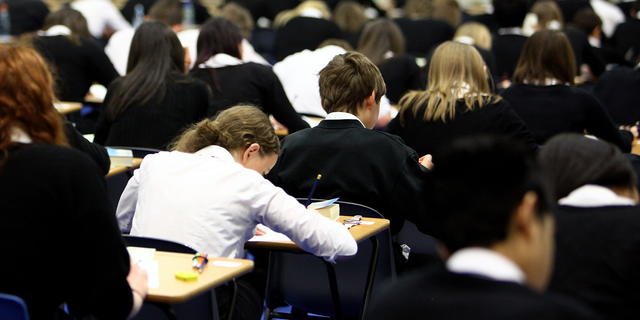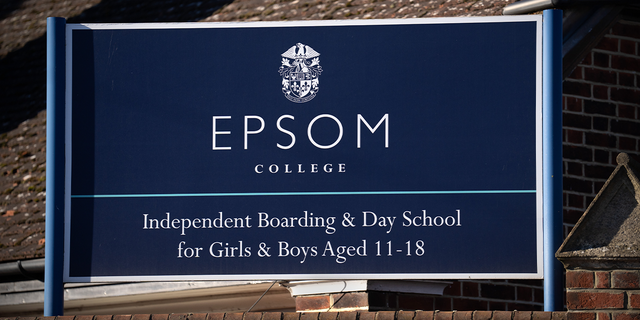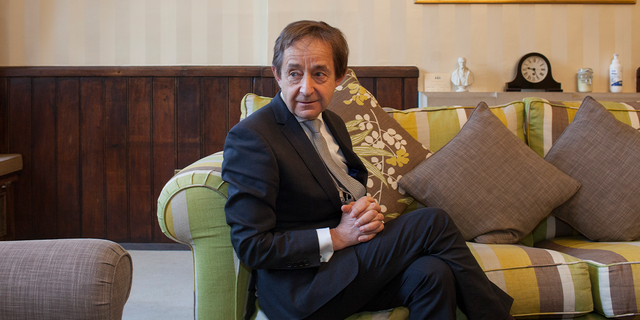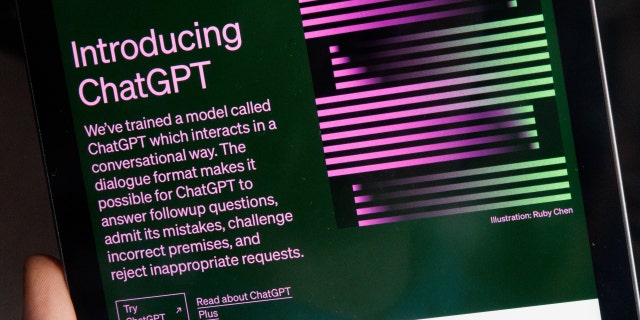Education leaders at top UK schools are taking AI concerns into their own hands, forming a technology advisory board and warning that AI risks pose the ‘biggest threat’ to schools.
The UK expects AI could bring about a ‘transformative change’ to its education system, according to Education Secretary Gillian Keegan, who said the technology could eliminate the ‘heavy lifting’ of a teacher’s day-to-day duties, such as compiling the lesson plan.
Since the release of ChatGPT last year, students around the world have reported using the technology to assist with school work, such as for term paper research.
Eight educators wrote a letter to The Times of London this month warning that while AI could be a useful tool for students and teachers, the risks of the technology are seen as the “biggest threat” to schools.
AI has been compared to the gun debate as college students stand at the technological crossroads

Pupils in the UK sit for a test. (Jeff J Mitchell/Getty Images)
“As leaders in state and independent schools, we view AI as the greatest threat but also potentially the greatest benefit to our students, staff and schools. Schools are baffled by the very rapid rate of change in AI AI and seek safe guidance on the best way forward, but who can we trust for advice?” the teachers’ coalition in the UK wrote in a letter to the Times.
The teachers, who included the heads of preparatory schools such as Epsom College, Magdalen College School and Wellington College, argued that the schools are “bewildered by AI’s very rapid rate of change” and lack a sounding board to orient yourself.
CHEATING WITH CHATGPT? STUDENTS TRY ON THE TEMPTATIONS OF AI IN THE CLASSROOM
“We have no confidence that large digital companies will be able to self-regulate in the interests of students, staff and schools. And, in the past, government has not shown itself capable or willing to do so,” write the teachers, noting that they are satisfied that Prime Minister Rishi Sunak recently said that “guardrails” on artificial intelligence need to be put in place.

Epsom College (Carl Court/Getty Images)
They said AI is evolving too quickly for local leaders to “provide the real-time advice schools need,” so they created their own solution, setting up an advisory board.
“We are therefore announcing today our cross-sector body of leading teachers in our schools, led by a panel of independent AI and digital experts, to advise schools on which AI developments could be helpful and which could be harmful,” the teachers wrote.
Anthony Seldon, head of Epsom College, spearheaded the letter and told The Times that AI could be this generation’s press time, but that the risks surrounding AI are “more serious than any threat ever faced the schools”.
“People are scared bunnies in headlights. Every week things change… There is a deep concern that technology is being used to [children’s] learning, their stimulation, their care. The rooting of mental health is in relationships and human contact,” Seldon said at a conference for school leaders this month.

Sir Anthony Seldon, head of Epsom College. (Report by Peter Dench/Getty Images)
He added that he was concerned about young people “losing touch with reality” by spending so much time interacting with “augmented reality and virtual reality”.
“As learning becomes more technological, their understanding of what is real and what is normal, what is true and false, will be progressively eroded,” he said.
OLDER GENERATIONS RIDE NATION ON AI KNOW-HOW: SURVEY
In the US, studies have shown that younger generations use AI systems like ChatGPT more than older generations. Gen Z, those born between 1997 and 2013, reported using technology on a regular basis more than previous generations, while college students say they use the platform most for English school work, followed by maths and social sciences.

The ChatGPt website on a tablet April 14, 2023, in Madrid, Spain. (Eduardo Parra/Europa Press via Getty Images)
Earlier this year, public school systems such as New York City Public Schools and the Los Angeles Unified School District restricted the use of ChatGPT from K-12 grades due to fraud and misinformation issues.
ChatGPT is trained by retaining text from the internet and using that information in its responses to humans. Students who use technology to complete class assignments risk possible misinformation – the system can “hallucinate” and give answers that appear to be correct but are not – and even plagiarize.
CLICK HERE TO GET THE FOX NEWS APP
The coalition of teachers in the UK is planning to release a website that will be mentored by 15 science or technology educators on educator guides on which AI technologies to embrace or avoid.
